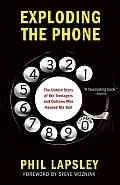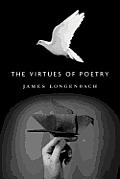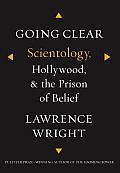Three New Ones
(before anything else: this came up this wknd at the Rumpus. Anyway)
 Exploding the Phone by Phil Lapsley
Exploding the Phone by Phil Lapsley
I feel terrible for now having gone far too long without shouting about this book. I’ve yapped before about two other books which are up the same alley as this: there’s Something in the Air by Marc Fisher, which is a history of radio, and there’s Perfecting Sound Forever by Greg Milner, which is a history of recorded music. I’m not sure if there’s any obvious or overt way these three books overlap—they’re microhistories, sure, and written by guys, but past that I’m not sure. But here’s the deal: Exploding the Phone is sas good a book of nonfiction you’ll read this year, and you need to read the thing as soon as you possibly can. In the most basic way, it’s a history of phone phreaking (if you know what a blue box is, or know anything about Cap’n Crunch, you needed this book yesterday). In a far more fleshed-out and interesting way, it’s a book about the invention of a system (the phone system, specifically) and the people who came in after the system was made and were interested in the system—in understanding it more fully, finding its strengths and weaknesses, etc.
Phone phreaking was the precursor to computer hacking, in its way: when phone systems ran on analog carrier systems, the system ran on sounds, on actual tones, and some people were keenly, deeply intruiged by the fact that there were specific combinations of tones that allowed their users to make free long-distance telephone calls—which, certainly, was a huge deal (I grew up in the 80s and 90s, a time of $.25/minute long-distance charges, and the height of phreaking was earlier, when prices were even crazier). And sure, of course: objectively phone phreakers were breaking the law, and were stealing from Ma Bell. But the thing that’s most engaging and wonderful about Lapsley’s book (which, let’s note, features a foreward from Woz of Apple, a phreaker himself with his pal SJobs) is how it highlights the sort of exploratory pleasure that actuall drove phone phreaking: most of the young men who actually were interested in it and who got involved were interested in phreaking more as an untellectual pursuit, interested in the challenge of the thing.
If you’re lucky, you have friends like that—friends who are enamored of systems and want to know more about it. One of my close friends—the first person I recommended this book to—works IT, and he *loved* this book—because, ultimately, whatever poking around he’s done online, perfectly legal or otherwise, has been animated by insatiable curiousity. It’s easy to make scary books and movies about black hat hackers who rob folks blind, and it’s easy to dismiss all those acts as crimes when we only consider them in such contexts; the panties get harder to bunch when we all realize that some folks who are testing the bounds of security are driven by curiousity, by the same engineer’s what-if that drove, well, folks like Steve Jobs. Who knows. Maybe that’s not the case, and maybe Exploding the Phone is just a real sweet almost halcyon book about the good old days before digital and everything else, when technological crimes were almost aw-shucksishly quaint. I’d like however to posit though that the book’s a gigantic grinning what if, a thick, riveting read that should, if you’re doing it right, reconfigure whatever certainties you think you’ve got about those folks benignly fascinated by systems. This is as close to a necessary book as I can imagine this year.
 The Virtues of Poetry by James Longenbach
The Virtues of Poetry by James Longenbach
I teach poetry every semester, and one of the hardest things to do, semester-in, semester-out, is walking through a poem’s moves. I don’t know the terms everybody else uses for this act, but all it means is to go very very slowly through a poem trying to note all it’s doing (with language, image, meaning, etc). The reason it’s so hard to do a walk-through with a class is both 1) sure, poetry’s sort of hard, but more significantly 2) most folks have never ever come across a decent walk-through of a poem before. Most of us have not spent all that much time or energy keeping our ear very close to a poem, for pages and pages of thinking and consideration. What’s hard about that work, of course, is simply this: attention. In fact, almost *anything* is easier than trying to sit quietly and think/work/walk through a poem.
All of which is preamble to say: James Longenbach’s The Virtues of Poetry is glorious and beautiful and is the smartest book I know of which tries to apply itself to walking through some poems. Here’s how good Longenbach is: I don’t like Ashbery. Don’t get his work, don’t care for it, have read lots of it. Longenbach’s chapters on the man are the first things I’ve read that’ve made understanding Ashbery even seem like something worth attempting. More than that: Longenbach, throughout The Virtues of Poetry, helps slot individual poems in a larger context of the development of poetry, a gift to the reader almost inestimably large. It’s a colossal book—get this now. For real. Also, this review at the Sycamore Review is far better than this one I just did.
 Going Clear by Lawrence Wright
Going Clear by Lawrence Wright
This came out too long ago now (January)—surely you’ve made up your mind. Maybe you haven’t. If you haven’t: get and read this fucking book. Please note that this is the most balanced and level-headed and generous assessment of a consistently controversial *thing* I could imagine: read the book as balm for yr own curiousity about Scientology, fine, but also read it to be amazed by the breadth of Lawrence Wright’s soul, basically, and how he can (I think) present a monumentally human and humane picture of an organization lots of us don’t know all that much about. It’s a stunner. But, again: you should’ve gotten it in January.





